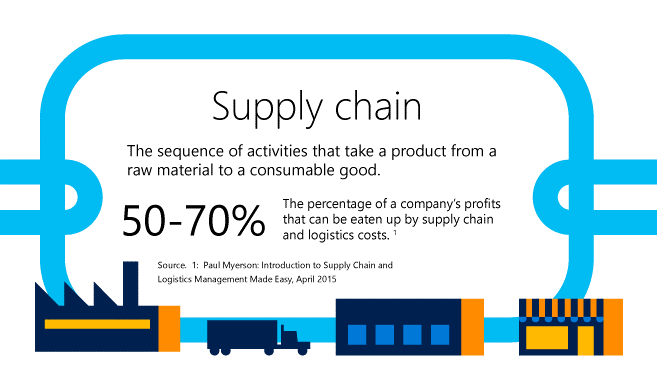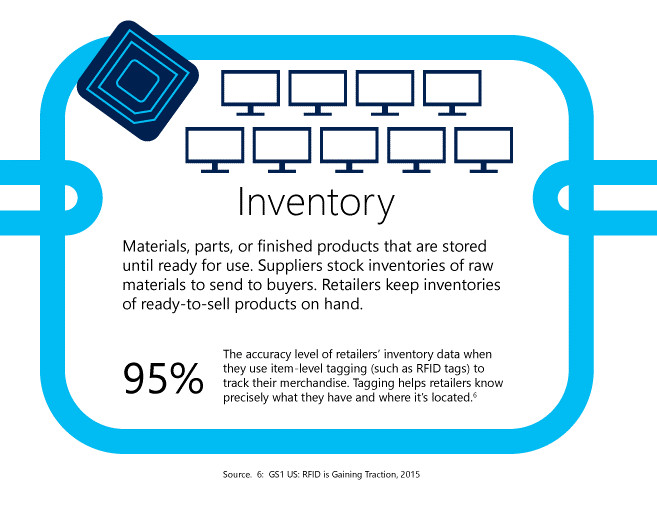Supply Chain Management and the Internet of Things
The Internet of Things is changing business as we know it. Defined as the place where the digital world meets the physical, it’s working to create extended enterprises that reach beyond the traditional supply chain paradigm. Supply chains used to be severed once the product reached the consumer, but with the Internet of Things, the chain now continues to another link.
So, what is the Internet of Things? Why is it important and what does it do for us? Specifically, what can it do for supply chain management?
The Internet of Things is a catchall name for any and all physical products, devices, appliances, etc. that are embedded with some sort of digital component, like sensors, software, or internet connectivity. Like a refrigerator that’s Wi-Fi enabled. Or a device or program that allows you to close your garage door, turn off lights, and enable your security system, directly from your smartphone.
One study by Gartner estimates that by 2020, over 20 billion “things” will be digitally connected. That’s close to 3 “things” for every person currently on the planet. Whoa.
As products become smarter, so do the supply chains that deliver these products to the consumer. Objects and goods that deliver information contribute to a more holistic, 360-degree data visualization of a supply chain.
For example, Microsoft customer WASH Multifamily Laundry Services has harnessed the power of connected devices to provide real-time data on the company’s washers and dryers. With over half a million washers and dryers in 75,000 locations, the ability to warehouse and gain insight on the data the machines provide is invaluable. WASH utilizes sensors, barcodes, smartphones, and other devices to gather data relevant to service calls and repair issues. Being able to view this data promotes overall supply chain efficiencies for WASH.
Manufacturing industries can benefit from IoT with a more connected and automated production line. Technologies like temperature gauges in factory facilities can optimize the perfect environment for the production of climate-sensitive goods.
Supply chain logistics can benefit from point-in-time data that will encourage shipping efficiencies. Product delivery delays can be avoided by using data to suggest the most efficient travel routes.
A more intelligent supply chain can enable greater efficiencies and, therefore, greater returns on investment. Providing additional data on a product after its purchase contributes to its overall value. Collecting data about the functionality of a product while a consumer is using it is invaluable. With this knowledge, you’re able to improve the next generation of your product with feedback provided directly by your users.
Supply chain management and the Internet of Things might just be a match made in heaven. With devices and connectivity to enable smarter production, more efficient logistics, and products smart enough to transmit data, the Internet of Things is facilitating smarter, more agile, and more connected supply chains.



